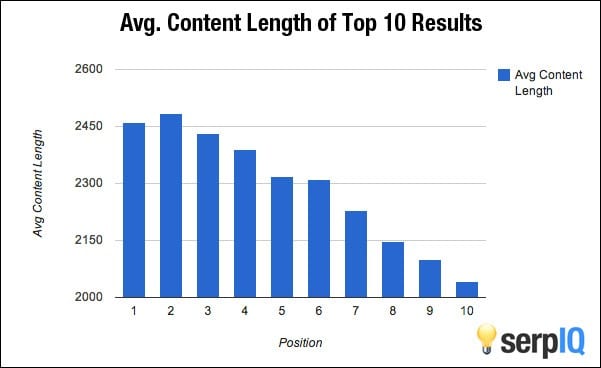5 Easy SEO Tips for Your Blog Posts

Making sure your blogs are SEO friendly is incredibly important, and there are some things you need to know before starting. First and foremost, you should be writing blog posts for humans, not bots. Bots have no feelings, but if you fail to inspire people, your blog posts won’t be very effective regardless of whether or not you’re optimizing the page for search engines. With that said, here are some basic SEO tips for your blog posts that will help them rank higher in Google, Bing, and other search engines.
Choose a specific keyword term or phrase you want to rank for

When writing a blog post,you want to optimize the post to be relevant for a specific search term or phrase. Think of search engines as restaurants that are competing to serve you the best food around. If you were to go to a restaurant and order a cheesesteak (Philly, what what!) and the waitress brings you back a fish sandwich, well you wouldn’t be very happy! You’d probably stop going to that restaurant if it happened enough. Why? Because they are not serving you something relevant to your order. Search engines operate exactly this way only with content instead of food. The user’s search term is their order and the results are what the search engines are serving back to them.
Google, Bing, and other search engines determine what is most relevant to a user’s inquiry and serves them back results that they deem fit the query. So how do they determine what is relevant? The first place they look is within page content, and that’s why it is incredibly important to write content with a specific keyword term or phrase in mind. If you want to rank highly when a user searches for “Exercise Tips,” for instance, then you should create content around this keyword. Here are some structural tricks to increase page relevance to your keyword:
- Include the keyword phrase in your title
- The page title has a lot of weight on content relevance to a keyword. Try to put your focus keywords as close to the beginning of your page/post title as possible. If your focus keyword phrase is “Exercise Tips,” think about a page title such as “10 Exercise Tips to Improve Your Workout Routine.”
- Include the keyword phrase in an H1 (heading) and/or H2 (subheading)
- Make sure that the keyword is included in a H1 and/or H2 on your page. An example of that would be “Exercise Tip #1: Breathe.”
- Sprinkle your keyword in a few times throughout your content
- First of all, don’t “keyword-stuff.” Search engines will know if you’re trying to cheat the system by including your keyword EVERYWHERE in the post. There is no exact ratio of keyword density that is optimal for a post, so just be smart about it. I’ve seen 1-4% working well in different circumstances. Just be aware, put the keyword that you’re trying to rank in a few spots in the copy, and relax.
Write a lot – people want to read it

One huge mistake is to think that shorter is better. Why? Well, it would make sense because people have terrible attention spans these days, but that’s only why it’s important to break up your content (see below). Shorter definitely isn’t better for blogs. Search engines like rich content and one of the key components to being viewed as a rich post is length. The longer a post is the more likely a keyphrase will be viewed as relevant to a search query. Also, people are much more likely to stay on a page longer with more content, thus showing search engines that they are engaging with your content.
A SerpIQ study found that content shown in Google search results in positions 1-3 had around 2,400 words on average. Want to rank higher? Write more! Just be mindful as to not be long winded, or repeat the same thing over and over again. Find topics you are passionate about and write a lot about them.
Include images/video for richer posts

It’s true. People do have pretty poor attention-spans these days. Imagine if 100 years ago, people had books where they could literally access over 100 million books they wanted to read from within 1 physical book…welcome to the internet! Because people have so many options to choose from when it comes to reading content, it’s important to keep your post engaging and make it stand out from others. One way is to make interesting copy, but beyond that you have to make it visually engaging.
Breaking up the text with images and videos helps make the post visually interesting, and it also can add a dash of personality/humor. Beyond what images can do to help engage readers, they can also be a good asset to text SEO, since you can use alt-attributes to add text to images for bots to read. This can help rank images for certain keywords in Google Image Search, and can improve standard keyword relevance on the page.
Add anchor links to other relevant blog posts

A really helpful thing you can do to increase site activity is adding anchor inbound links to other relevant blog posts. If you’ve ever written about a similar topic or something related, you can link to it from within your blog.
For example, if you are writing on Exercise Tips, and you wrote a blog post on the top 10 jump ropes for cardio building, you can write something like: “A great way to exercise is by jumping, and a good jump rope is great for a rigorous cardio workout. Check out my blog on the top 10 jump ropes for cardio building.”
This tactic helps encourage people to read more content on your site while also putting special emphasis on certain keywords. As with keyword stuffing, be careful not to overdo anchor links, as you could end up getting penalized instead of being rewarded.
Promote your posts

It’s easy to have the mentality that after you’ve finished a post, it’s time to relax. Unfortunately, just putting content on a page is not going to get you visitors; it takes a little while to rank a page for keywords. When you first write a post it’s important to market it. Push it out to your social, and promote the post on Facebook. Find relevant hashtags and push the main post out on Instagram or Twitter. Repost part of the blog on LinkedIn and link back to the full article on your site.
There are plenty of tactics to use to quickly rank a site, but content promotion should definitely not be overlooked.
These SEO tips for your blog post just barely scratch the surface when it comes to ranking, but they are all very important. There are more tips for advanced optimization, but these are all relatively easy and should be taken into consideration on every content piece you put together. Now get blogging’!
BONUS: Get your blog on other websites
Once you’ve written a blog, don’t you hope people share it! The more trustworthy backlinks to your blog/site, the higher your post will show up in search results when someone is looking for relevant content. Need help getting backlinks? Check out this article for tips on how to get backlinks.

About Great Big Digital
Achieve your website goals with customized data, intuitive UX, and intentional design.


